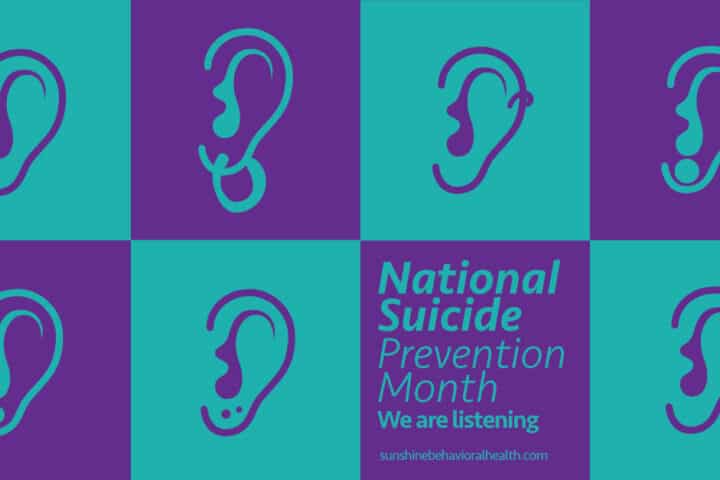
National Suicide Prevention Month: Warning Signs of Suicide
While we can’t 100% predict the future or determine if people we know are struggling, there are ways we can determine if we can help someone. More specifically, there are signs that someone may be thinking about suicide.
Depression or other mood disorders
Suicide risks are greater for people who are severely depressed or have a mood disorder such as bipolar disorder (a condition where people experience both depression and mania or excitement).
Mood changes
On the other hand, people may be sad and depressed for a long time and then suddenly appear happy. They could appear happy because they’ve decided to carry out their plans to kill themselves.
Making plans
Suicidal people may be making and carrying out plans, such as making wills. They could be giving their possessions away or taking other steps that indicate that they don’t plan to be around for much longer.
Talking about death
In conversations, suicidal people might say things about how life might be without them and how they don’t want to be around. Or, suicidal people might not directly talk about the topic. Their talk could be more indirect, with talk about death and dying in general.
Increased isolation
Of course, you might have trouble talking with suicidal people because you’re having trouble reaching them. Sometimes, people in this condition isolate themselves and spend less time with others with no explanation.
Changes in hygiene and appearance
When you do meet with people, does it seem like they aren’t washing themselves, changing their clothes, or bothering with their hair, especially if they cared about those things before? They may be severely depressed and/or thinking about ending their lives.
Increased drug or alcohol use
Suicidal people might not care about their appearance, but they might care about drugs or alcohol. Sometimes, people abuse alcohol or drugs because they think that being drunk or high feels better than feeling suicidal or depressed.
If you spot one or more of these signs, talk with the person. Conversations about suicide might be difficult or awkward, but they won’t make people think of taking their own lives. Talking can reassure them that other people care and want to help.
It’s also okay if you don’t know what to say. Besides, you might end up listening more than talking. A sympathetic ear can make all the difference – even the difference between life and death.
Sources
caps.ucsc.edu – Depression and Suicide
sunshinebehavioralhealth.com – Alcohol and Suicide
A Message From Our CEO
Medical disclaimer:
Sunshine Behavioral Health strives to help people who are facing substance abuse, addiction, mental health disorders, or a combination of these conditions. It does this by providing compassionate care and evidence-based content that addresses health, treatment, and recovery.
Licensed medical professionals review material we publish on our site. The material is not a substitute for qualified medical diagnoses, treatment, or advice. It should not be used to replace the suggestions of your personal physician or other health care professionals.





